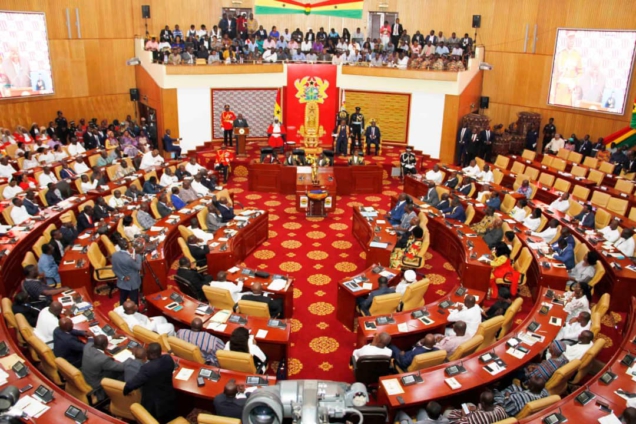Parliament Approves Bill to Repeal E-Levy; President Mahama’s Approval Anticipated

On Wednesday, March 26, the Parliament of Ghana passed a bill that will abolish the much-debated Electronic Transfer Levy (E-Levy), a decision that has been met with widespread approval from various sectors of society. The bill now awaits the signature of President John Mahama to become law, marking a pivotal moment in the ongoing debate surrounding the controversial tax.
The E-Levy, which was introduced in 2022 by the previous government under the New Patriotic Party (NPP), had been a source of intense public discourse since its inception. It imposed a 1.5% tax on a range of electronic financial transactions, including mobile money transfers, bank transfers, and payments made online. Proponents of the levy argued that it was essential for raising revenue to fund critical infrastructure projects, which they believed would benefit the country in the long term.
However, the E-Levy quickly became one of the most controversial tax policies in recent years. Many citizens, businesses, and even some political figures voiced their concerns, arguing that the tax was excessively burdensome on the general population, particularly on low-income earners and the unbanked. The negative impact of the levy on digital transactions was a frequent point of contention, with critics highlighting that it could stifle financial inclusion and hinder the growth of mobile money and other digital payment platforms, which had become increasingly vital to the economy.
In addition to concerns about its impact on digital transactions, there were widespread protests and public outcry over the perceived unfairness of the levy. Many believed that the tax disproportionately affected the most vulnerable groups in society, including people in rural areas who rely heavily on mobile money for day-to-day transactions. The backlash was so significant that it eventually led to political pledges to repeal the levy.
The passage of the bill to abolish the E-Levy in Parliament marks a major step towards addressing these concerns. While this is a moment of relief for many, the bill now requires the approval of President John Mahama, who has long opposed the levy. President Mahama and his political party, the National Democratic Congress (NDC), made the promise to abolish the E-Levy a central part of their campaign platform ahead of the December 2024 general elections. The issue of the levy became one of the key talking points during their political campaigns, with the NDC vowing to repeal it if they secured power.
On Friday, when the vote was put to Parliament, the bill passed without any opposition. Not a single parliamentarian raised an objection to the proposal, signaling that there was widespread consensus among lawmakers on the need to abolish the E-Levy. This unanimous approval from Parliament highlights the level of dissatisfaction with the tax policy across the political spectrum, as well as the increasing pressure from the public for its removal.
Once President Mahama signs the bill into law, the abolition of the E-Levy will be official, and Ghanaians will no longer be required to pay the 1.5% tax on electronic transactions. For many, this represents a significant victory in the fight against what was seen as an unfair and burdensome policy.
Looking forward, the move to abolish the E-Levy reflects broader discussions about the role of taxation in economic development and the need for tax policies that are both equitable and sustainable. The decision also highlights the growing importance of public opinion in shaping government policies, particularly in the era of digital payments and financial inclusion. Many are hopeful that the removal of the levy will help stimulate growth in the digital economy and encourage greater participation in formal financial systems.
In conclusion, the passage of the bill to abolish the E-Levy marks a critical moment in Ghana’s political and economic landscape. With President Mahama’s anticipated approval, the country will move closer to undoing a policy that sparked widespread debate and public protests. The outcome represents a victory for many Ghanaians who felt the tax was unfair, and it sets the stage for further discussions on how best to manage the country’s tax policies in the future.






